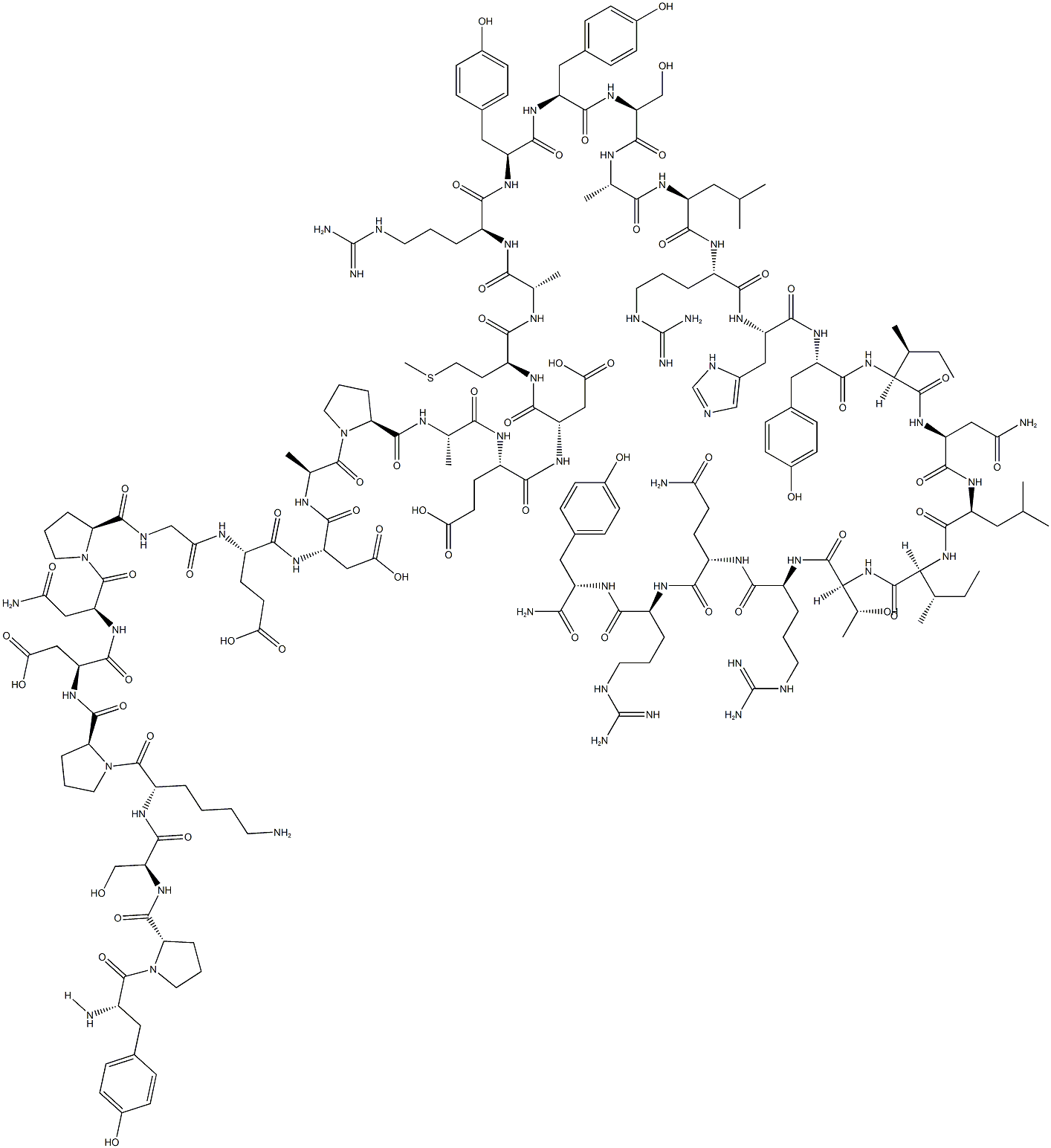Description
Neuropeptide Y (NPY) is a peptide abundantly distributed throughout the central and peripheral nervous systems that plays a major role in controlling appetite, blood pressure, cardiac contractility, and intestinal secretion. Five subtypes of the NPY receptor have been identified. Subtypes Y
1 and Y
5 have known roles in the stimulation of feeding while Y
2 and Y
4 seem to have roles in satiety. NPY has also been shown to interact with the immune system, promoting gastrointestinal inflammation, as well as exhibiting an antimicrobial effect against several gut bacteria.
Uses
Neuropeptide Y (NPY) human has been used:
- to study the effect of antiepileptic effects on pentylenetetrazole (PTZ) rats.
- as a standard in high-performance liquid chromatography (HPLC) standard and control to verify specificity of the antibodies.
- to study the effect of NPY on motor and electroencephalographic (EEG) seizures induced by kainic acid.
General Description
Neuropeptide Y is a regulatory molecule encoded by a gene mapped to human chromosome 7p15. Neuropeptide Y is a 36 amino acid protein with C-terminal α-amide structure. It is ubiquitously distributed in heart and brain, but at high levels in paraventricular hypothalamic nucleus, hypothalamic arcuate nucleus, suprachiasmatic nucleus, median eminence, dorsomedial, hypothalamic nucleus, paraventricular thalamic nuclei. NPY is a member of antimicrobial peptide family, which also include dermaseptins, cecropins or magainins.
Biochem/physiol Actions
Vasoconstrictor; brain peptide that inhibits Ca2+-activated K+ channels in vascular smooth muscle. Implicated in the control of blood pressure, sexual behavior and food intake. Inhibits cholecystokinin- and secretin-stimulated pancreatic secretion.
storage
-20°C (desiccate)
